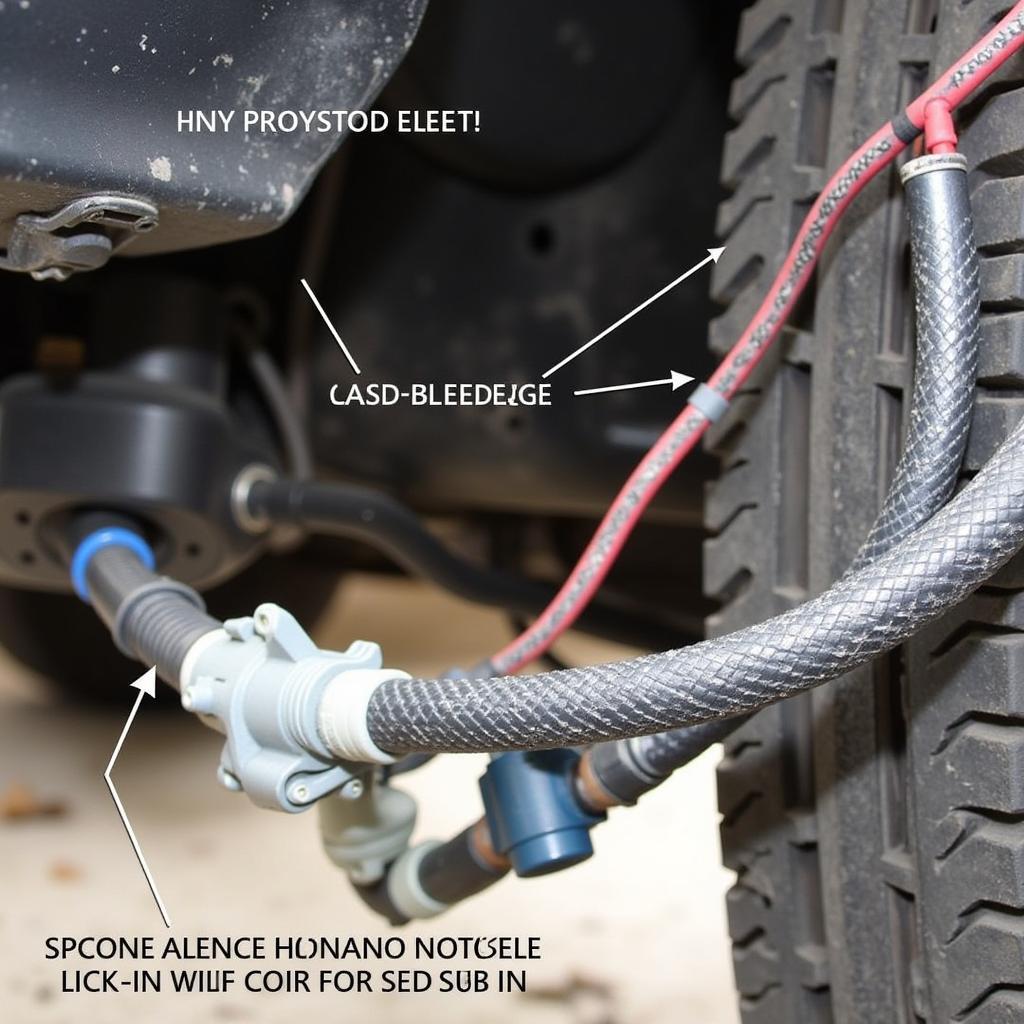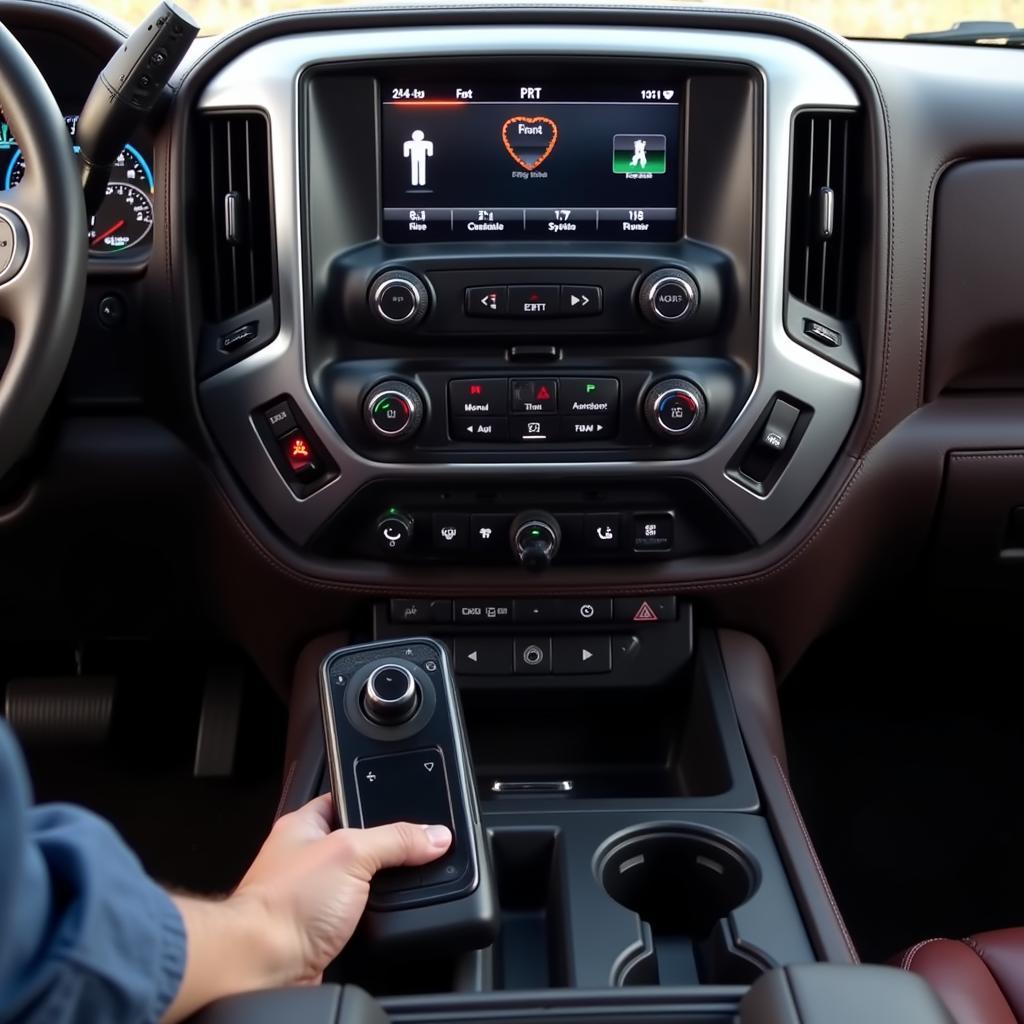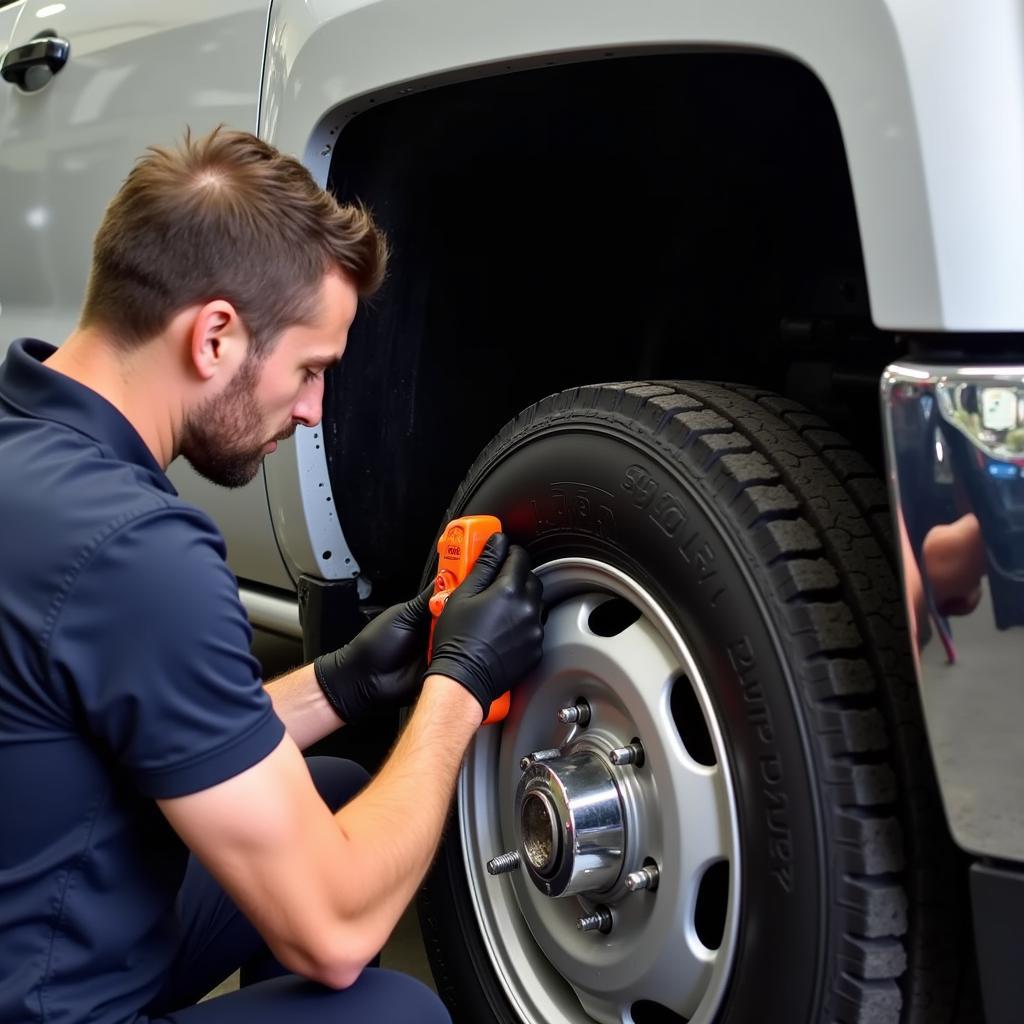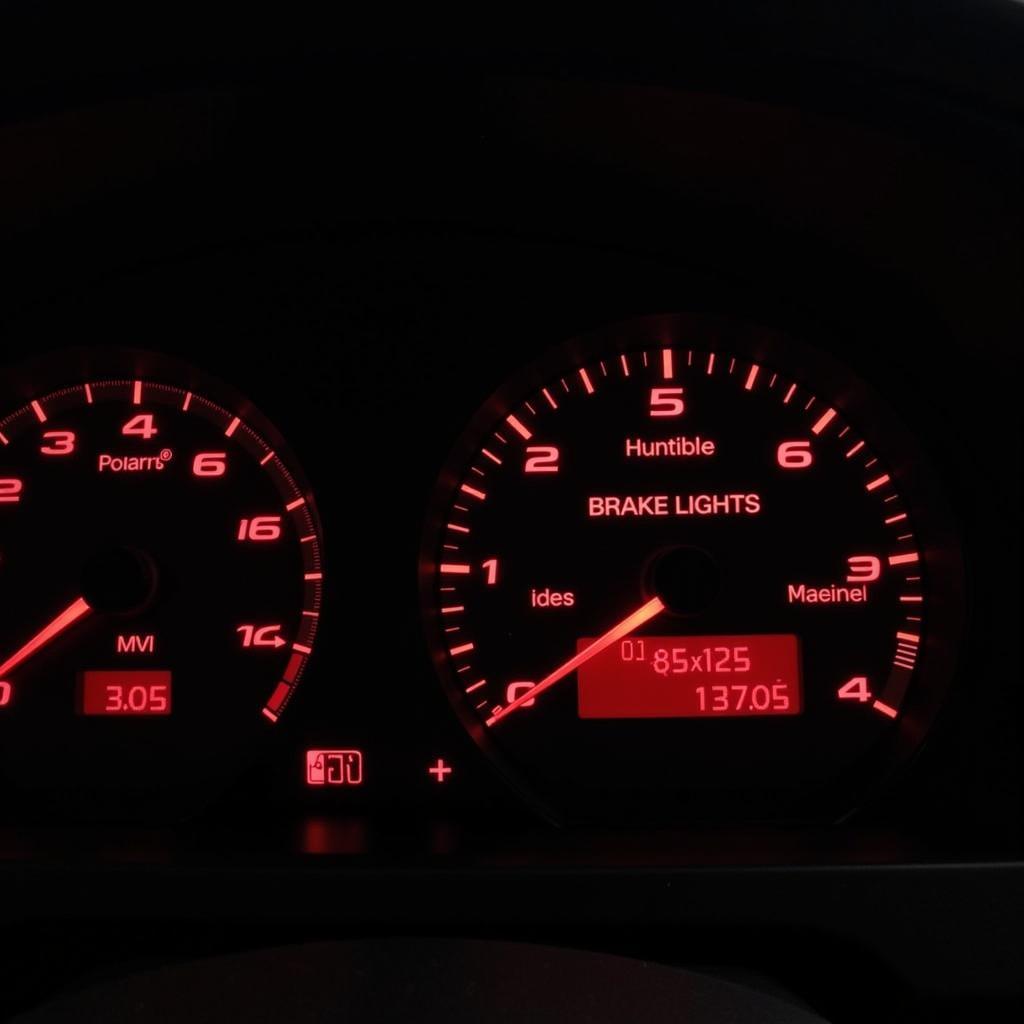The “trailer brake system warning” message flashing on your Silverado’s dashboard can be a cause for concern, especially when towing heavy loads. This comprehensive guide will walk you through common causes, troubleshooting tips, and potential solutions for this issue.
Understanding Your Silverado’s Trailer Brake System
Before delving into the warning, it’s important to understand the basics of your Silverado’s trailer brake system. This system works in conjunction with your truck’s main braking system to provide additional stopping power and control when towing.
Modern Silverados often feature integrated trailer brake controllers, allowing you to adjust the trailer brake force from the driver’s seat. The system relies on a complex network of wiring, sensors, and modules to ensure safe and effective braking.
Common Causes of the Trailer Brake System Warning
The “trailer brake system warning” can be triggered by a variety of issues, ranging from minor glitches to more serious system faults. Here are some of the most common culprits:
-
Loose or Corroded Wiring Connections: The trailer brake system relies on a series of electrical connections. Loose, corroded, or damaged wiring can disrupt the flow of signals, leading to the warning message.
-
Faulty Trailer Brake Controller: The integrated trailer brake controller in your Silverado can malfunction due to internal component failure or software glitches.
-
Trailer Brake Magnet Issues: The trailer’s brake magnets, responsible for engaging the brakes, can wear out, overheat, or become misaligned.
-
Blown Fuses or Relays: The trailer brake system has dedicated fuses and relays that can blow, interrupting power supply and causing the warning.
-
Problem with the Brake Pedal Position Sensor: Your Silverado’s brake pedal position sensor plays a crucial role in signaling the trailer brake controller. A malfunctioning sensor can lead to inaccurate brake signal transmission.
 Silverado Trailer Brake Wiring
Silverado Trailer Brake Wiring
Troubleshooting the Trailer Brake System Warning
If you encounter the “trailer brake system warning,” don’t panic. Here’s a step-by-step guide to help you troubleshoot the issue:
-
Check the Trailer Connection: Ensure the trailer is properly connected to your Silverado’s hitch and that the wiring harness is securely fastened. Inspect the 7-way connector for any signs of damage, dirt, or debris.
-
Inspect the Wiring: Thoroughly examine the trailer brake wiring harness for any visible damage, such as cuts, frays, or loose connections. Pay close attention to areas where the wiring might rub against sharp edges.
-
Test the Trailer Brakes Manually: If your Silverado is equipped with an integrated trailer brake controller, attempt to activate the trailer brakes manually using the controller’s override feature.
-
Check Fuses and Relays: Consult your Silverado’s owner’s manual to locate the fuse box and identify the fuses and relays associated with the trailer brake system. Inspect them for any signs of blowing or damage.
-
Consider External Factors: Extreme weather conditions, such as extreme cold or excessive heat, can sometimes affect the trailer brake system’s performance.
 Silverado Trailer Brake Controller
Silverado Trailer Brake Controller
When to Seek Professional Assistance
While some trailer brake system issues can be resolved with basic troubleshooting, more complex problems may require the expertise of a qualified mechanic or automotive electrician. If you encounter any of the following, it’s best to seek professional help:
- You suspect a fault with the integrated trailer brake controller.
- The warning persists after checking and addressing basic issues.
- You’re uncomfortable working with electrical components.
Remote Diagnostic and Programming Services: A Modern Solution
In today’s digitally connected world, remote diagnostic and programming services are transforming the way we address automotive issues. If you’re experiencing the “trailer brake system warning” on your Silverado, remote services offer a convenient and efficient way to diagnose and potentially resolve the problem.
How it Works:
-
Connect Your Vehicle: Using a specialized device that plugs into your Silverado’s OBD-II port, a remote technician can access your truck’s computer system.
-
Diagnose the Issue: The technician can run comprehensive diagnostic scans to pinpoint the root cause of the trailer brake system warning.
-
Software Updates and Programming: In some cases, the issue might stem from outdated software or require reprogramming of the trailer brake controller. Remote technicians can perform these updates wirelessly.
Benefits of Remote Diagnostic and Programming Services:
- Convenience: Address the issue from the comfort of your home or workplace.
- Speed: Remote diagnostics can often be completed faster than traditional methods.
- Expert Assistance: Access to experienced technicians specializing in automotive electronics.
Preventing Future Trailer Brake System Issues
Prevention is always better than cure. Here are some tips to help you avoid future trailer brake system problems:
-
Regular Inspections: Regularly inspect your trailer’s wiring harness, connectors, and brake magnets for any signs of wear, damage, or corrosion.
-
Proper Maintenance: Follow the recommended maintenance schedule for your Silverado and trailer brake system as outlined in your owner’s manual.
-
Use the Right Equipment: Always use a trailer hitch and wiring harness that are compatible with your Silverado’s specifications.
 Silverado Trailer Brake Inspection
Silverado Trailer Brake Inspection
Conclusion
The “trailer brake system warning” on your Silverado should never be ignored. By understanding the potential causes, following the troubleshooting tips, and considering remote diagnostic services, you can address the issue promptly and ensure safe towing experiences. Remember, when in doubt, consult a qualified mechanic.

